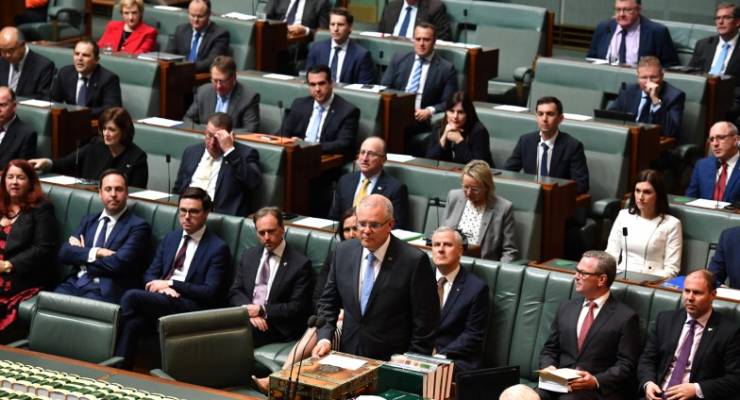
If Scott Morrison achieves nothing else as Prime Minister, his apology yesterday to the victims of institutional child abuse will be a fine legacy. He delivered a superb speech, both in plain-spoken presentation and in commitment to substance.
He explained the functions of the National Office of Child Safety, a new best-practice mechanism for understanding and dealing with the impacts of child abuse and supporting survivors, a regular reporting process on the royal commission’s recommendations and a new national museum — “a place of truth and commemoration, to raise awareness and understanding of the impacts of child sexual abuse. We will work with survivor groups, to ensure your stories are recorded, that your truth is told, that our nation does not turn from our shame, and that our nation will never forget the untold horrors you experienced.”
The apology covered key aspects of the legacy of institutional abuse — the failure to believe children, the failure of government safeguards, the lives lost to self-harm, the courage of those who came forward and the pain of those who could not — as well as ones the will persist for decades to come — when ageing survivors face the possibility of having to move into aged care institutions, triggering childhood terrors anew. That Morrison himself is a man of faith, from a church stained by its own history of child abuse, added, rather than detracted, from its power.
Both sides subsequently agreed to cancel Question Time for the day, avoiding the shame of March 2013, when Labor’s leadership circus overshadowed Julia Gillard’s apology for forced adoptions — although maybe they should reflect on what that says about the conduct of Question Time itself.
If there was a theme to Morrison’s address, it was how the victims of abuse were failed systematically, not merely by the churches, schools, scout troops, orphanages and other institutions in which they were preyed upon, but by the authorities that were charged with protecting them. “Why were the cries of children and parents ignored? Why was our system of justice blind to injustice? Why has it taken so long to act? Why were other things more important than this, the care of innocent children? Why didn’t we believe?”
Those are questions that should be inscribed on the walls of both chambers of parliament, because the lesson extends far beyond the many thousands of victims of child abuse. The epidemic of child abuse carried out in institutions was a product of a deep power imbalance that politicians and those charged with protecting children not merely failed to redress but exacerbated by collaborating with abusers and the institutions that protected them.
The churches wielded huge political and institutional influence, ensuring that they could cover up child abuse without fear of police investigating, courts prosecuting or politicians decrying it. Even as late as 2012, some defenders of these powerful interests were railing against the royal commission.
When organisational (or corporate) power is not merely unchecked but facilitated by politicians and regulators, abuse and criminality are the inevitable consequences — but that abuse and criminality will become so egregious that eventually politicians are forced to acknowledge the failure of existing regulation and intervene. That, after all, is what a royal commission is: an acknowledgement that existing systems of regulation have failed or been corrupted and a special, draconian intervention is required that short-circuits the normal power wielded by the guilty.
The politicians sitting and listening to Morrison and Bill Shorten yesterday might reflect on how many other ways, right now, powerful interests are victimising Australians and getting away with it because of the political, financial and organisational power they wield. Fortunately, few cases will be as horrific as what has been revealed by the child abuse royal commission.
But MPs and senators should remember a little more frequently that their role should be to question and scrutinise powerful interests, not act as representatives for them. Otherwise there will be more apologies, about more forms of institutionally enabled misconduct, in coming decades.








Crikey is committed to hosting lively discussions. Help us keep the conversation useful, interesting and welcoming. We aim to publish comments quickly in the interest of promoting robust conversation, but we’re a small team and we deploy filters to protect against legal risk. Occasionally your comment may be held up while we review, but we’re working as fast as we can to keep the conversation rolling.
The Crikey comment section is members-only content. Please subscribe to leave a comment.
The Crikey comment section is members-only content. Please login to leave a comment.